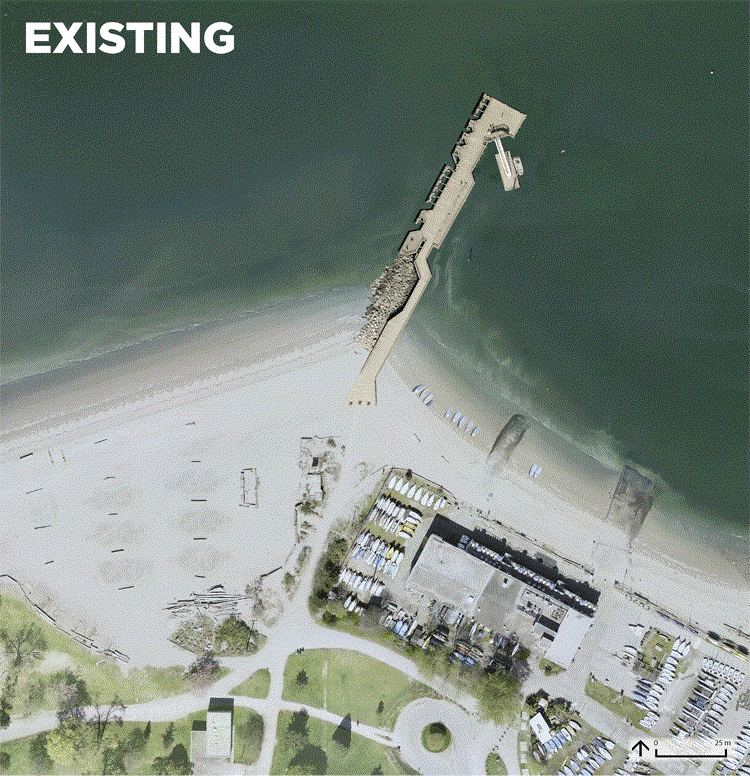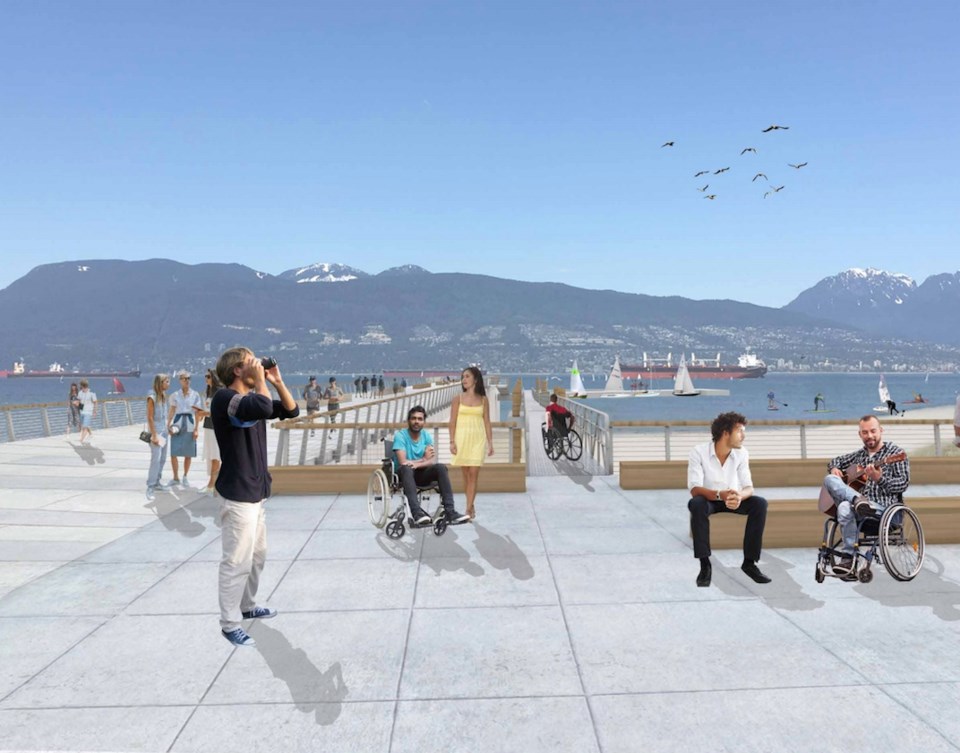The pier at Jericho Beach Park is slated to undergo a transformation that will make it more accessible for people with disabilities.
On Monday night, the Vancouver Park Board unanimously approved the design for revamping the pier, which is located on the west side of the Jericho Sailing Centre. The plan includes an accessible floating dock. The centre has been home to the Disabled Sailing Association for almost 30 years.
Currently, disabled sailors must get into one of the association’s eight specially-designed boats on land, and then the boat and the sailor have to be taken down the ramp and into the water, said program manager Stephen Hunter. It means only one boat can be launched at a time, he said, and boats cannot be launched if the tide is too low, limiting the number of sailings the association can support.
“Each summer we’re having to turn people away,” said Ruby Ng, executive director of the Disability Foundation, which supports programs that provide opportunities for people with physical disabilities to pursue outdoor activities.
The accessible floating dock will mean disabled sailors can get directly into the boats on the water, allowing multiple boats to launch simultaneously. It will also mean the association can increase its fleet to 12, Hunter said.

This is the only location in the Lower Mainland that accommodates disabled sailing, Hunter said, adding that there are chapters in Victoria, Kelowna, Ladysmith and Whistler, and the Jericho location is the only one in the country without a floating dock.
“It’s been a long process and a wish to have access to the water with a floating dock,” he said, adding that the association first started talking about the idea about 10 years ago.
“It’s great,” Hunter said. “The park board is continuing to support the inclusion of everyone in their programs.”
Earlier this year, the board installed beach accessibility mats at English Bay. The mats allow people using wheelchairs or other mobility aids to get down onto the sand and closer to the water.
The plan to revamp the pier has been in the works for a few years. In 2013 the park board approved allowing the sailing association to conduct a study looking at the feasibility of building an accessible dock. The next year the board and the association formalized a working partnership for the redevelopment of the pier.
The design for the pier includes new features like seating and accessible washrooms, as well as accommodating existing uses and activities like fishing and crabbing. The redesigned pier will also be higher than the current structure. According to a staff report, the new design will be 2.5 metres higher than the existing pier to accommodate climate change and future increases in sea level.
Park board staff said that, according to historical photos, there has been a pier at that location at least since 1942. The current pier was built in 1977 through refurbishing the existing piles and structure.
The redesign will cost an estimated $16 million. The sailing association will have to raise about $8 million of that.
Park ranger service model to be developed
Also Monday night, the board approved a motion directing staff to work with the city and police to develop a service model for park rangers to address concerns around safety and security in Vancouver’s park, particularly around the increased use of injectable drugs and the discarded needles left behind.
The report from staff came out of a motion put forward by NPA commissioner John Coupar. Coupar’s motion included asking the city for more funding to allow for around the clock park ranger patrols. Park rangers currently patrol the city’s parks between 7 a.m. and midnight seven days a week. According to the report from staff, increasing patrols to 24 hours a day would cost an estimated $485,000 a year. That cost would only cover the additional ranger positions, and does not include support like supervision and dispatch.



